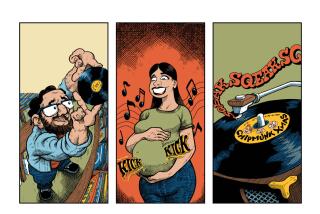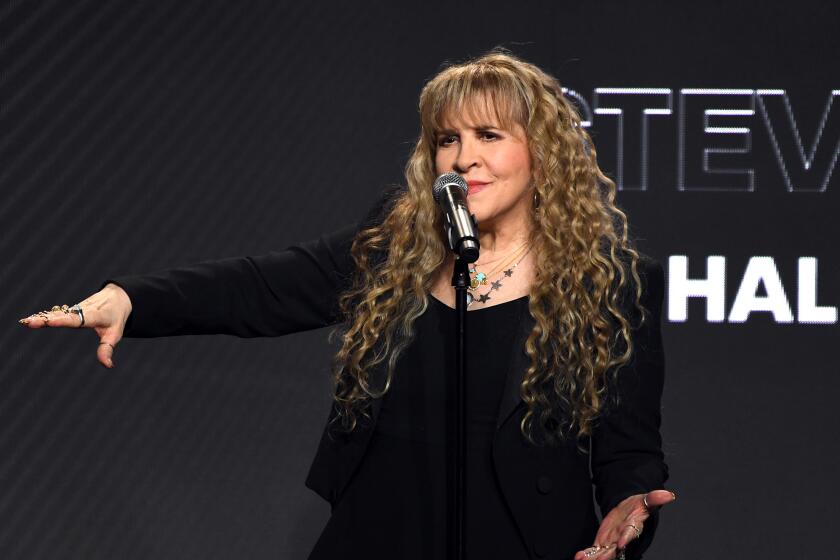New Sound Formats May Herald End of Venerable Cassette Tape : Entertainment: Some critics call the Digital Compact Cassette and Mini Disc a step back in quality. A better CD player may also be near.
- Share via
With the rollout this fall of two new music formats, Digital Compact Cassette and Mini Disc, the digital revolution in consumer audio is entering a new phase.
The 10-year-old Compact Disc has already pushed the vinyl record to the brink of extinction.
Philips, Sony and other electronics vendors, emboldened by consumers’ apparent enthusiasm for the crisp, clear sound and ease of use offered by digital technology, now hope that DCC and MD will do the same to the venerable cassette tape.
At the same time, it’s becoming clear that the original promise of digital audio--”perfect sound, forever”--is a long way from being fulfilled. The two new formats use digital techniques radically different from those employed on the compact disc. And several efforts are underway to improve the sound quality offered by the CD itself.
The result is likely to be growing variation in the quality of the sound offered by different digital music systems. Such diversity should be good for consumers but is also likely to renew the longstanding debate over whether digital technology robs music of its background tones and subtle textures.
“The future of digital will be like the analog past,” says Ken Pohlmanna professor of music engineering at the University of Miami. “It will break out into a broad spectrum of products with different quality.”
Today, most compact disc systems are created more or less equal. Expensive models feature more elaborate electronic controls, better “error correction” techniques to eliminate skipping, and sophisticated methods for eliminating distortion.
The basic technology, though, is always the same. The undulating wave-form of the original music is converted to the ones and zeros of computer code, with each number representing a piece of the analog wave. The laser of the CD player then reads these “bits” and converts them back to audible analog sound.
A key limitation of the technology is the number of bits. More bits mean a more accurate representation of the analog wave and thus better sound. But the basic design of the CD dictates a fixed number of bits--about 700,000 per second--and some critics contend that the result is a sterile, hollow sound that doesn’t reflect the richness of the original music.
Rock star Neil Young, in an editorial in Guitar Player magazine, denounces digital music as a “farce,” likening the sound of the CD to “ice cubes washing over you” and asserting that we now live in “the darkest age of musical sound.”
And music aficionados who spend thousands of dollars on their stereo systems have long taken it for granted that the best CD sound is far inferior to what can be achieved with a good analog system.
The problem of too few bits is magnified exponentially in the case of the two new formats, Mini Disc and Digital Compact Cassette.
Sony, the developer of MD, wanted a system that could use a very small disc, and would record as well as play back. Philips, pioneer of DCC, was seeking a tape system that bore enough resemblance to traditional analog cassettes to allow the old tapes to play in the new machines.
In both cases, these requirements meant that the formats would have to use far fewer bits than the CD. That, in turn, required development of an entirely different method for sampling the sound.
The solution is a technique called “perceptual encoding,” which uses models of the human hearing mechanism to discriminate between audible and inaudible sound signals. Rather than recording a uniform sample of the original sound, with every piece of the analog wave treated equally, perceptual encoding schemes ignore parts of the analog wave that supposedly cannot be heard, and only those bits representing audible sounds are recorded on the tape or disc.
Philips says DCC players, now on sale for about $700, sound just as good as CD. Sony doesn’t make the same claim for Mini Disc--in part because it doesn’t want the MD to eat into CD sales--but says the sound is still far superior to the cassette tape. The palm-sized MD players, designed as a replacement for the Walkman, also cost about $800.
“I don’t think customers will be dissatisfied in any way, shape or form with the sound quality compared with the cassette,” says Paul Foschino, director of new technologies at Sony USA. “And compared to CD, it’s pretty close.”
Indeed, some audio experts even say that future systems based on perceptual encoding could be an improvement over CD.
“Because it makes use of psycho-acoustics, it has the potential to be even better,” says Ed Foster, president of a Connecticut audio consulting company called Diversified Sound Labs.
Yet audiophiles remain skeptical.
Robert Harley, writing in the magazine Stereophile, calls the current generation of “reduced-bit-rate” schemes such as DCC and MD “a step backward, a regression--even a perversion of audio science.”
Because audio quality is a subjective phenomenon, it will be up to individual consumers to decide whether vendors’ claims about quality hold up.
Meanwhile, several efforts are underway to develop better-sounding versions of the original CD system. Sony is promoting a studio recording technology called “super bit mapping” that’s supposed to improve the quality of the CD discs themselves.
And a tiny Berkeley company called Pacific Microsonics has spent the last five years developing a system dubbed High Definition Compatible Digital, or HDCD, which can be used in both studio recording and play-back to improve CD sound quality. Recordings made with the HDCD system will sound better on any CD player, according to the inventors, and CD machines equipped with a special HDCD computer chip will offer an even more dramatic quality improvement.
In a listening demonstration at the company’s one-room headquarters in Berkeley, the HDCD prototype did in fact sound more like a high-quality analog sound system than a CD player.
Harley of Stereophile and several other experts who have heard the system said it had great potential.
Developed by Keith Johnson, a well-known recording engineer, and Michael Pflaumer, a computer networking pioneer, HDCD uses a series of complex digital tricks to eliminate distortions in the original recording and cram only the most important audio information onto the CD.
The company aims to license the HDCD technology to CD manufacturers, who would then incorporate the chip into premium-priced systems. Michael Ritter, president of Pacific Microsonics, says his company’s role would be similar to that which Dolby Laboratories plays in improving cassette tape sound.
“This is such an improvement that it can actually obsolete existing equipment,” Ritter contends. The company hopes that CD players bearing its invention will begin hitting the market next year.
More to Read
The biggest entertainment stories
Get our big stories about Hollywood, film, television, music, arts, culture and more right in your inbox as soon as they publish.
You may occasionally receive promotional content from the Los Angeles Times.










